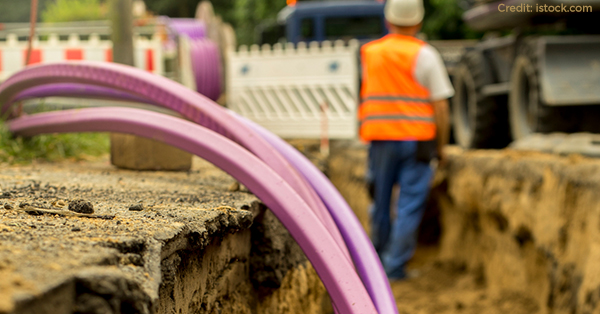Louisiana is spearheading the country’s most significant infrastructure investment in high-speed internet, using federal broadband grants, reported the Louisiana Illuminator. Although this should be a time to celebrate the closing of the digital divide across the state, not all stakeholders are enthusiastic.
On Monday, the state House Commerce Committee discussed a side effect of broadband infrastructure construction projects: the accidental damage of underground pipes and cables. The Illuminator reported that the mistakes are due to poor communication between contractors (hired by ISPs), local governments, and utility companies, less-than-optimal record keeping regarding existing locations of pipes and cables, and legacy ISPs’ refusal to disclose the location of their cables. The Illuminator reported instances in which subcontractors failed to call the Louisiana 811 dig safety hotline or seek a permit at the local government level.
Nick Cox, mayor of Minden, LA, commented on the issue explicitly regarding contractors. “We call them ‘bore and ignore contractors’ because they just bore and ignore the problems,” he said.
Cox expressed concern over scenarios where a sidewalk was removed from a heavily foot-trafficked area and one where contractors used water from a city hydrant for their boring job. His biggest grievance is that when mistakes happen, they are not reported to the city. Cox now assigns city employees to “babysit” some of the contractors.
On the flip side, some existing infrastructure is not properly labeled or was never mapped. According to Swyft Fiber CEO Jason Hunt, his company struck underground infrastructure eight times while burying roughly 1,300 miles of fiber optic cable due to inaccurately marked locations, according to the Illuminator. He also noted that at the speed with which Louisiana is expanding broadband infrastructure, “such accidents” are unavoidable.
The Illuminator reported that the Louisiana Office of Broadband Development and Connectivity was established in 2020, one of the first in the nation. This early adoption enabled the state to apply for federal dollars at the forefront. According to the American Enterprise Institute, Louisiana was ranked best in the country for handling federal broadband subsidies. Additionally, the National Digital Inclusion Alliance’s Digital Equity Index ranked Louisiana sixth in the country for its digital equity initiatives.
Louisiana has received $176 million from the American Rescue Plan Act (ARPA) and will obtain $1.3 billion from the bipartisan Infrastructure Law this fall. The ARPA funds were distributed to 18 providers through the Granting Unserved Municipalities Broadband Opportunities (GUMBO 1.0); 88 percent of projects are either under construction or completed. The next round of funds will be disturbed under GUMBO 2.0; officials are currently vetting 33 companies applying for grants.





Reader Interactions